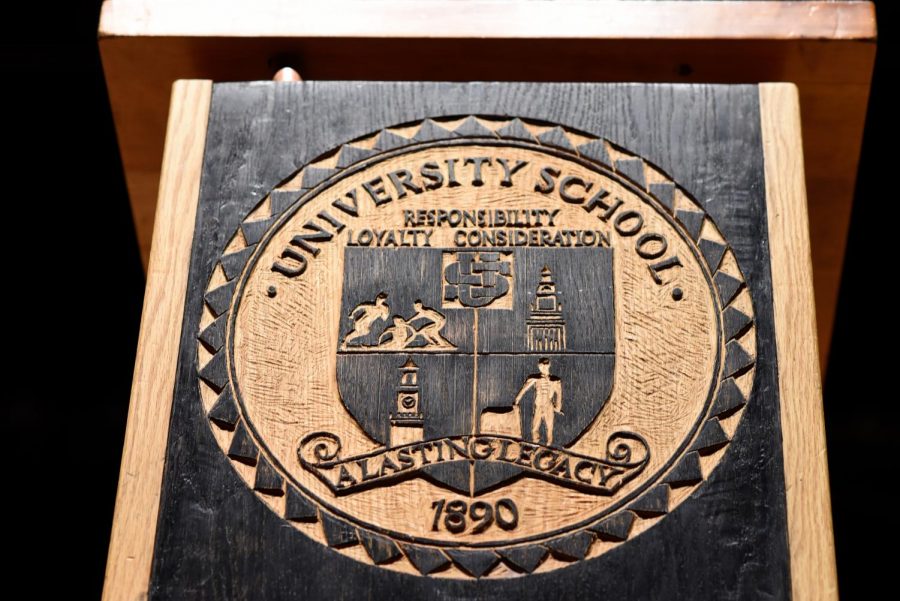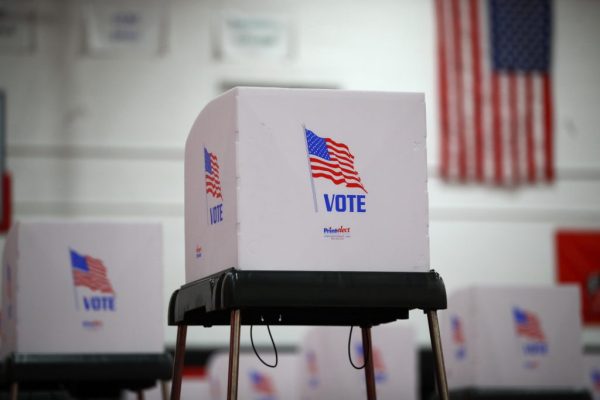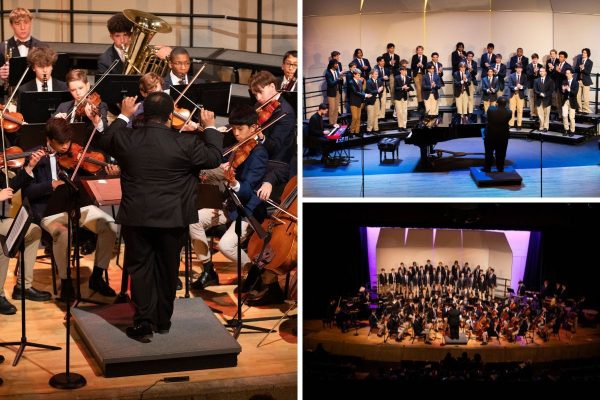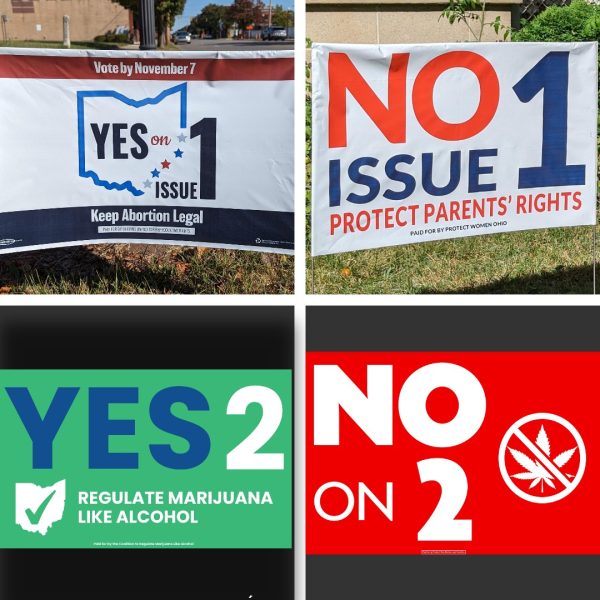The Sherman Prize Speaking Contest
February 25, 2018
Taking into account the success of the Speech and Debate team, the senior speech graduation requirement, and the student-led sports introductions, it is clear that University School is an institution that values the ability to speak clearly and comfortably in front of large audiences.
On February 15th, University School celebrated one of its most beloved annual public speaking traditions: The Sherman Prize Speaking Contest. Once again, six juniors presented well-written speeches that encapsulated their ideas and emotions and conveyed them to the audience.
Jake Nordell won first place for his speech “Stand Up Tall,” which argued against removing Confederate statues across the nation. Taking second place for his speech “Enlightened,” Clayton Lovell spoke about his personal struggle to discover his own existential truth. In third place with his speech “Hear Me,” Bryan Rego discussed the challenges he has faced due to his speech impediment. Three honorable mentions were awarded to Pearce Richer, Danny Ciano, and Nathan Timm.
The judges for the contest included US trustee Mr. Jon Outcalt ’55, Mr. Ameer El-Mallawany ’01, who is the principal of Campus International High School, and Ms. Jennifer Neundorfer, who is the co-founder of Flashstarts, a startup accelerator in downtown Cleveland. This year’s contest was specially dedicated to Program Director Mrs. Janice Fazio, who will not be returning to US for the next school year.
Although the junior class’ speeches are always thought-provoking for the student body, this year’s speeches proved to elicit an exceptionally diverse array of reactions from the student body and faculty.
Exhibiting one of these reactions, Sai Karnati ’20 states, “I feel like the speeches were a lot more diverse this year than they were last year. Each speech was great—However, I did not feel as though the speeches connected to me and my daily life personally.”
Many students and faculty members were impressed by some of the finalists’ more personal approach to the contest.
Parker Crowley ’20 states, “This year was the first year where I actually thought the judging reflects my own opinion.” To Parker, the speeches were “more personal” this year, and students can “learn a lot from a speech about a peer’s personal struggles, maybe even more than from speeches that talk about large-scale issues” that can sometimes feel intangible to the average US student.
Mr. Somers agrees with Parker, stating, “I thought the quality and eloquence of the speeches were impressive this year. I’ll say that in years past, some speeches appeal to the heart while others appeal to the head. This year, I think there was a good mixture of both.”
Mr. Lewis, who was a semifinalist judge for the contest, offers his opinion of the speeches as well. “As always,” Mr. Lewis begins, “I was struck by the ability of the contestants to express themselves and to also connect with their audiences. Anyone can express themselves, but it is harder to communicate effectively with a large audience.”
“That being said,” Mr. Lewis continues, “I think I was struck this year by how personal the speeches were, even in the semifinals. I would not choose to deliver a personal speech. For me, my experience with rhetoric is about addressing issues outside of myself. However, I am struck by the courage it takes to share a bit of yourself with others—a courage I don’t think I possess.”
It is clear that many members of the US community believe that the contestants in this year’s contest exhibited an exceptional ability to convey their emotions and ideas to the audience. Indeed, it is opportunities like the Sherman Prize Speaking Contest where individual students can connect with the school community that distinguishes University School from other schools in the greater Cleveland area.











